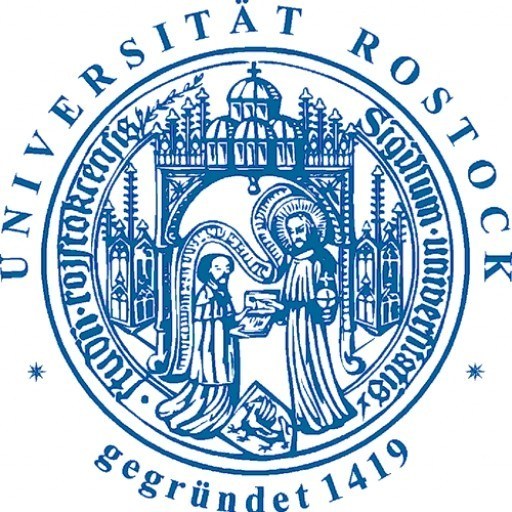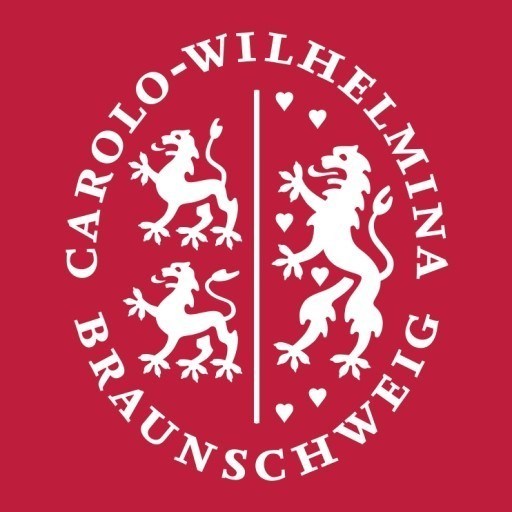Photos of university / #tu_berlin
"Global Production Engineering in Manufacturing (GPEN) at Technische Universität Berlin is an innovative international master's degree program designed to prepare students for leadership roles in the field of manufacturing and production engineering. The program emphasizes the development of advanced technical and managerial skills necessary to optimize complex production processes, integrate cutting-edge manufacturing technologies, and implement sustainable solutions in a global context. Students will gain a comprehensive understanding of modern manufacturing systems, digitalization, automation, and supply chain management, enabling them to address the challenges of Industry 4.0. The curriculum combines theoretical foundations with practical applications, including project-based learning, internships, and collaboration with industry partners worldwide. Advanced coursework covers topics such as production planning, quality management, robotics, and digital manufacturing. Throughout the program, students will develop competencies in project management, research methods, and innovative problem-solving, preparing them for careers in international manufacturing companies, technology firms, or research institutions. The multilingual environment and diverse student body foster cross-cultural communication skills and global networking opportunities. Graduates will be equipped to contribute to the development of sustainable and efficient manufacturing processes, driving innovation in the manufacturing industry on a global scale. The program benefits from TU Berlin’s extensive industry connections, cutting-edge research facilities, and faculty expertise, ensuring students are well-prepared for the demands of a rapidly evolving industrial landscape. Upon completion, students will earn a Master of Science (M.Sc.) degree, opening doors to various international career paths in production engineering and manufacturing management."
Educational organisation
120 credits must be obtained over four semesters in order to be awarded the degree Master of Science in Global Production Engineering.The GPE programme is structured into five module groups, each consisting of at least two modules. Each module is worth credit points (CP) based on the European Credit Transfer System (ECTS). One credit point is worth a workload of 30 hours. The workload includes the lecture hours, exercises, preparation, exam, etc.
During the first three semesters, students must pass modules with a total of 90 CP. Students have to complete at least 12 CP from module groups A, B, C, and D, and at least 6 CP from group E (total: 54 CP). A further 36 CP have to be chosen out of all the other modules (e.g. more than one module can be chosen from "Production") to gain a total of 90 CP. The five module groups are:
A Production
B Engineering
C Management
D Intercultural Communication
E Special Profile
Additionally, students have to attend a "workshop for intercultural communication and relationship" and a seminar "scientific working."
In semester four, an industrial internship of at least nine weeks (12 CP) must be completed. Towards the end of the programme, a Master's thesis must be written (18 CP) in order to complete the programme.
Within the international GPE in Manufacturing study course, students have the opportunity to choose their core direction and to specialise in the fields of technology management, production and operation management, product development, environmental friendly manufacturing or IT in manufacturing. TU Berlin will confer the degree of Master of Science (MSc) in Global Production Engineering.
Internships
A nine-week (minimum) internship has to be completed. The internship can be done at any company in any country except your home country.Forms of assessment
- A written or oral final exam is administered at the end of a course or equivalent coursework.
- Several graded exercises must be completed in each class.
Course objectives
Globalisation and technology development are advancing rapidly. In a global market, companies must balance the ability to create and design innovative solutions as well as the ability to exploit them. Industry-based companies demand strategy-oriented personnel with a solid technological basis on the one hand and an entrepreneurial attitude on the other.Rather than focusing on business administration, Global Production Engineering (GPE) enables engineers to create systematic technological innovations, combined with efficient and effective industrial business management.
Language requirements
If you have studied in the UK, Ireland, the USA, Canada, Australia or New Zealand, your Bachelor's certificate is accepted as proof of your English proficiency.If this is not the case, the following tests/results are accepted:
IELTS 6.5 or TOEFL IBT 70 or TOEFL CBT 190 or TOEFL PBT 520 or CAE pass or CPE pass (minimum scores)
Generally, tests should have been taken not more than twelve months prior to your application.
Language skills in German are an advantage.
Academic requirements
Requirements for successful application to the GPE study programme are:- Bachelor of Engineering or equivalent
- Excellent grades
- English proficiency, at least: IELTS 6.5 or TOEFL IBT 70 or TOEFL CBT 190 or TOEFL PBT 520 or CAE pass or CPE pass
- At least one year of professional experience
- German knowledge is advantageous.
Enrolment fees
Approx. 300 EUR per semester, including a public transport ticket for Berlin and administration fees for TU BerlinCosts of living
700-800 EUR to cover personal expenses, depending on personal lifestyleJob opportunities
It is possible to work as a student research assistant or a teaching assistant at the TU Berlin. Many job opportunities are available to students. Students may also apply to be student employees in the Berlin region at companies such as Siemens and Bombardier.Arrival support
A welcome guidebook will be sent to you prior to your arrival in Germany, describing all important aspects of living in Germany, and especially in Berlin. In addition, to help you get started in Berlin and within the GPE programme, we offer a senior-junior programme. This programme was designed to help you throughout your first semester and especially during the first couple of weeks in Berlin. Seniors are experienced GPE students who have volunteered to take part in this initiative. Your senior will pick you up at the airport and will help with your registration and residence permit. Seniors can also introduce newcomers to student life in Berlin.Services and support for international students
The programme offers extensive services including individual guidance regarding the structuring of course selection, a senior student programme including pick-up service at the airport, supporting and advising new students, an introduction event where you will be introduced to TU Berlin, the GPE programme, a module presentation, a presentation of important regulations, lecturers and professors and much more. Services also include a PC pool reserved for GPE students including print service, library facilities, special literature in English, a separate examination office (to avoid long waiting periods), the GPE campus management system, application and soft skill trainings, a collection of internship and job contacts, and a Graduate Alumni Partnership network (GAP). The programme provides a long list of companies that have already employed a large number of GPE graduates, including Daimler Benz, Rolls Royce, Siemens, BMW, VW etc. Students can also participate in visits to fairs, companies, and important industry regions such as the Hannover Fair, Inter Solar, Solar Valley, etc.Our Student Office will help you gladly with all your issues - ranging from visa questions to heath insurance.
Accommodation
There are several possibilities for finding accommodation in Berlin. Student dormitories as well as single apartments or larger apartments shared with flatmates are popular among German students. Average costs for an apartment or a room in a shared apartment may vary from 250 EUR to 400 EUR depending on the size and configuration of the apartment. Utility costs of 50 to 80 EUR are usually not included in the rent. Your senior will support you in renting appropriate accommodation.http://www.house-of-nations.com
http://www.studentenwohnheim.de









